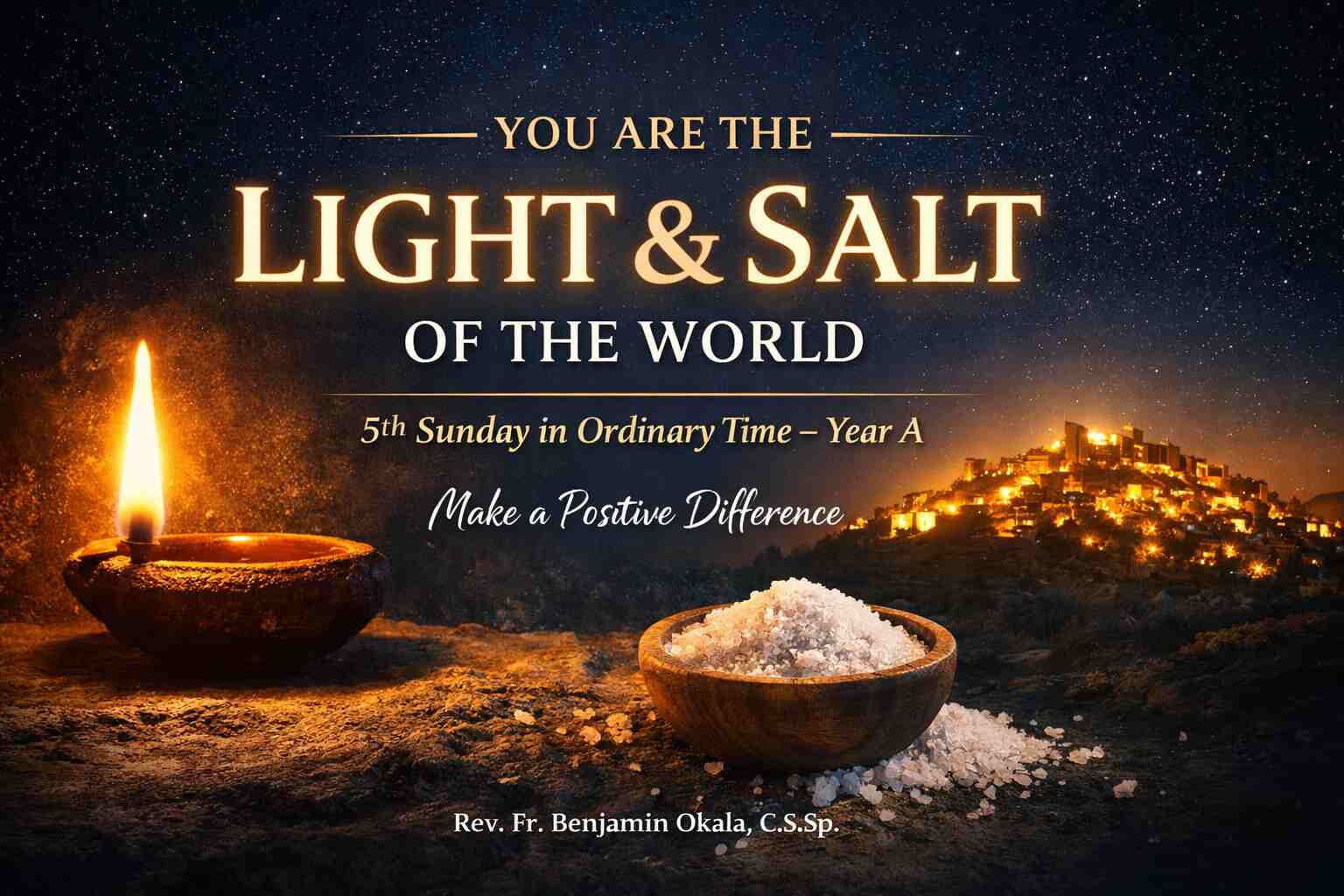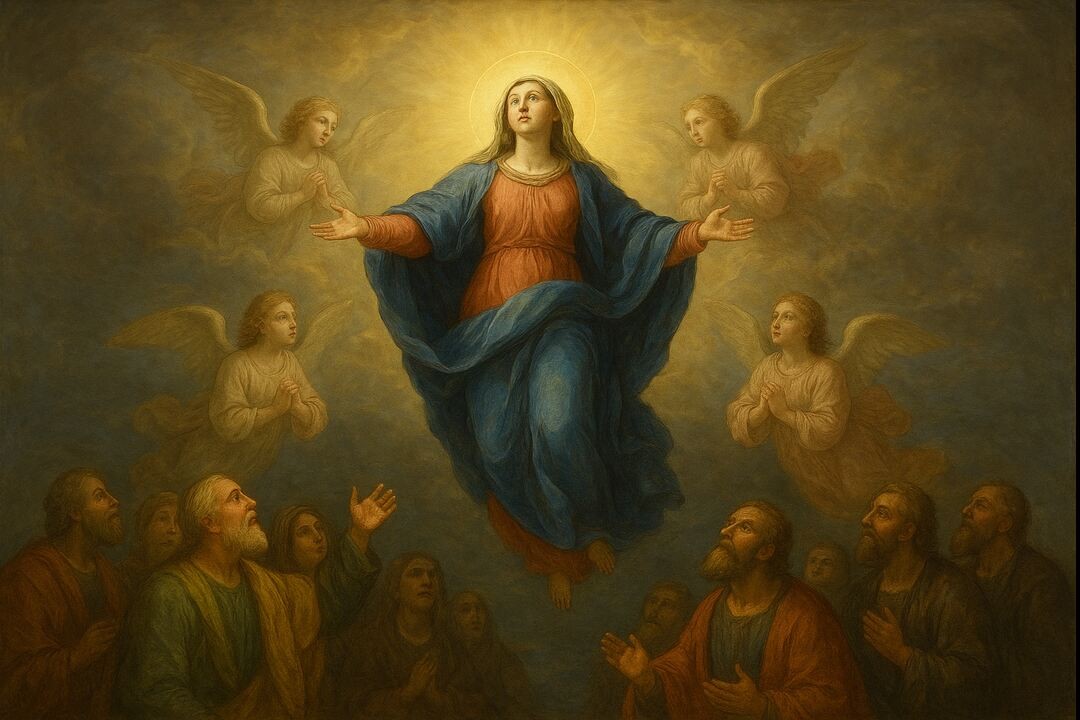Homily of 4th Sunday of Advent, Year C
First Reading: Micah 5:1-4; Second Reading: Hebrews 10:5-10; Gospel: Luke 1:39-45
Today is the fourth Sunday of Advent and the final Sunday in the Advent season. This Sunday serves as a reminder of the fulfillment of God’s promises and encourages us to reflect on the significance of Christ’s coming into the world. God does not choose people based on their class, positions of honour, or popularity to fulfill His divine plans. Instead, He chooses those who are humble, obedient, or ready to sacrifice their comforts to save others, as well as those willing to fulfill His divine plans.
God promised to send a Messiah (Saviour) to the world who would redeem humanity. This Messiah would not come from a great city like Jerusalem or a rich, powerful family but from a small, unknown, and insignificant people of Judah—Bethlehem. From the lowly clan of Judah and Mary, the humble handmaid, God prepared a body for Christ. Please join us as we reflect on the power of divine visitation and how it shapes God’s plans through humble and unexpected choices.
UNEXPECTED CHOICES IN DIVINE PLANS
Many prophets of the Old Testament made reference to the coming Messiah. But Micah’s prophecy in the first reading was one of the clearest, as he was precise about the birthplace of the Messiah, which helped the Magi to know the exact town where the Messiah would be born. The story of Christ’s birth in Bethlehem exemplifies how divine visitation often occurs in the most unassuming circumstances. God works in mysterious ways beyond human comprehension. His ways are certainly not our ways, and His mercy surpasses all human understanding (Isaiah 55:8–9).
Undoubtedly, God does not choose people based on their class, positions of honour, or popularity to fulfill His divine plans. Instead, He chooses the lowly, weak, humble, or those ready to sacrifice their comforts to save others. This challenges our perceptions of power and greatness, reminding us that true strength lies in humility and service. Through the humble beginnings of Jesus Christ, God demonstrates that His plans are fulfilled not through worldly power but through love and sacrifice. Hence, this Advent season invites us to embrace this perspective, opening our hearts to the transformative power of divine visitation in our own lives.
THE POWER OF DIVINE VISTITATION OF THE VIRGIN MARY TO ELIZABETH
In the Gospel reading, Micah’s prophecy came to light when the Virgin Mary visited Elizabeth. Despite her pregnancy, Mary, filled with the Holy Spirit, found time to visit Elizabeth to share her joy. Her visit to Elizabeth exemplifies the power of divine visitation, as it reveals her profound role in God’s redemptive plan. She displayed hospitality, generosity, humility, and love through this act. When Mary approached Elizabeth, the Holy Spirit revealed to Elizabeth and the unborn child in her womb that her visitor and cousin was to be the Messiah’s mother.
Immediately, filled with the joy of the Holy Spirit, Elizabeth was inspired to proclaim the dignity and special position given to Mary in God’s plan for our redemption. She exclaimed, “Blessed are you among women, and blessed is the fruit of your womb! Why should I be honoured with a visit from the mother of my Lord? Look, the moment your greeting reached my ears, the child in my womb leapt for joy. Blessed is she who believed that the promise made to her by the Lord would be fulfilled” (Luke 1:42–45). We see the divine power of Mary’s contact on Elizabeth. She was powerfully influenced by Mary’s interaction. So, we should be careful whom we interact with or take as our close friend (Proverbs 27:17). This is because the person we interact with in life can either influence us positively or negatively.
THE BLESSED VIRGIN MARY: MODEL OF FAITH AND TRUST
The Blessed Virgin Mary most perfectly embodies the obedience of faith. In her humility and trust in God, she believed that there would be a fulfillment of what was spoken to her from the Lord (Luke 1:45). Moreover, the first beatitude mentioned in the gospel, “Blessed is she who believed,” is reserved for the Blessed Virgin Mary. She is proclaimed blessed because of her attitude of total trust in God and full acceptance of His will by saying yes to become the “Theotokos.”
Certainly, we should take cognizance of God’s faithfulness in fulfilling His promises, particularly through the Virgin Mary. Her story highlights the power of divine visitation, showcasing her unwavering faith and trust in God’s promises. Of course, both Elizabeth and Mary serve as models of faith, offering their lives and their children to God with gratitude and trust. Similarly, God plans to honour us personally with His divine visit this season. He knows our homes and will come quickly to visit us individually so as to transform and improve our lives. The question is, are you ready to welcome Him when He knocks at your door (Revelation 3:20)?
THE SACRIFICIAL LOVE OF JESUS CHRIST: A CALL TO SELFLESSNESS
The second reading reminds us of the real meaning of the incarnation. The incarnation of Christ is a testament to the power of divine visitation. It shows the deep sacrificial love, humility, and obedience of Jesus Christ—the Messiah, who truly knows why God chose Him and offered Himself to come into the world to save humanity from her precarious conditions.
Undoubtedly, being chosen by God often means both a crown of joy and a cross of sorrow. The piercing truth is that God does not choose a person for ease, comfort, and selfish joy but chooses someone to use him or her for a serious task that requires commitment and devotion (Isaiah 49:5–6). Most especially those who love sincerely and are willing to sacrifice their lives for the sake of Christ. As a matter of fact, love is sacrifice. To love is to sacrifice one’s convenience, energy, time, resources, and talents for the sake of others. Where there is no sacrifice, there is no love, and where there is no love, there is no Christianity.
CONCLUSION
From today’s readings, it is obvious that God works in mysterious ways beyond human comprehension. He does not choose people based on popularity, status, or appearance to carry out His mission. Instead, He chooses those who are humble, obedient, and willing to sacrifice their lives for the sake of others. We may be insignificant in the eyes of the world, perhaps because we do not belong to high-class (bourgeoisie) personalities or rich, powerful families.
However, once we sincerely and humbly love God and our fellow human beings, God may use us at the appointed time to carry out big tasks, which may make us famous in the world, just like Bethlehem. So, as we joyfully anticipate the coming of our Savior, we are called to reflect on how we can offer our own lives to God through humble services to families who are passing through difficult challenges this Christmas. As we reflect on the power of divine visitation, let us open our hearts to God’s call and prepare to make a difference in the lives of others.
PRAYER:
May the Almighty God, through the power of the Holy Spirit, envelop you and your family. And may you experience the blessings and joy of the Lord when He visits your family this Christmas through Jesus Christ our Lord, Amen.
Peace of Christ be with you.
Rev. Fr. Benjamin Okala, C.S.Sp.



